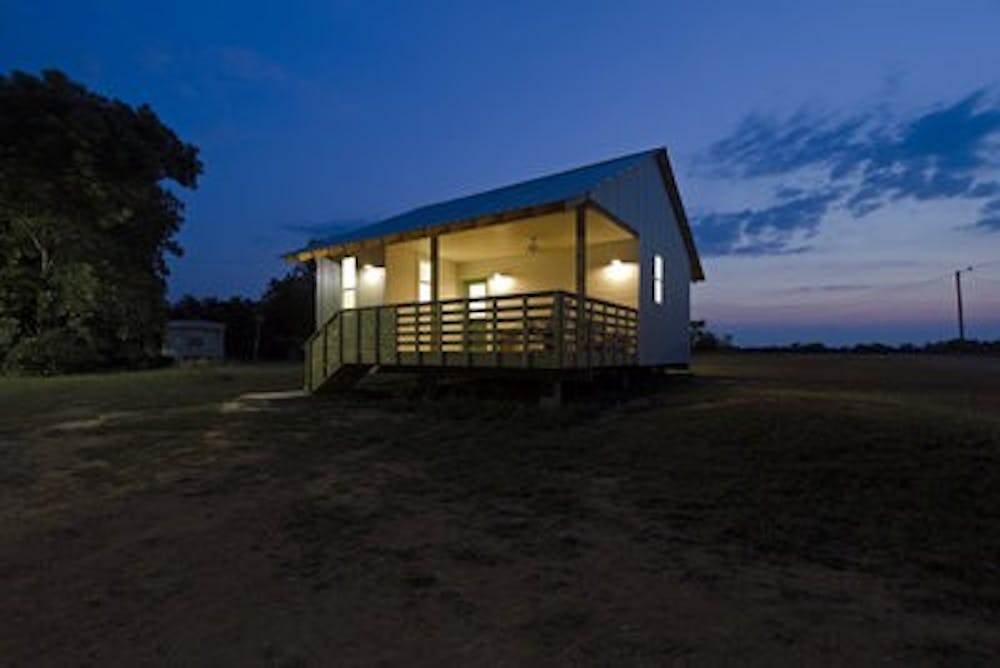The College of Architecture's Rural Studios program is giving impoverished residents of Hale County something to be proud of.
Director of Rural Studios Andrew Freear and his team of architecture students have designed and donated $20,000 homes that fit the needs of impoverished people who would otherwise be living in substandard conditions.
Rural Studios has donated one house per year since the program started in 1993 for third-year architecture students who move to the rural Alabama town of Newbern for one semester to study under Freear and other faculty.
But after 10 years of learning more about designing affordable housing and helping the poor, Freear said the Rural Studios team took action.
"We wanted to give people a plan they could take to a contractor," Freear said. "We established the amount of $20,000 because we thought that was a mortgage payment that even the poorest of the poor could afford. Over a 30-year fixed-interest rate, the monthly payment would be $100."
According to Freear, the challenge of the project has been to build something that won't deteriorate physically or lose value.
Freear said he and his team focused on making the homes sustainable, affordable, heated and cooled while still retaining beauty on a limited budget.
"We tried to learn a lot from antebellum homes in the area," Freear said. "They're all mostly made of wood and still standing many years later. They're sensible. They have high ceilings that allow hot air to rise and porches. So we utilized both of those things in the 20k houses to increase energy efficiency and create a welcoming effect."
Conner Bailey, professor of agricultural economics and rural sociology, said many of the poorer residents of the Hale County area are forced to live in houses and mobile homes that do not provide adequate shelter because of their financial situation.
Bailey said the psychological effects of having to worry about the fundamental aspects of living can make a person less productive in their pursuit of the American dream.
"Owning a home gives people a sense of self-pride," Bailey said.
According to Bailey, the level of substandard living in Hale County and surrounding areas in west Alabama is greater than in other areas of the state because of the area's transition from row crop farming to forestry over the course of decades. As farmers gradually left the area, a decrease in population resulted in economic decline that has yet to rebound.
Audrey Hodges, Rural Studios student and senior in interior architecture, said leaving the "life of luxury" in Auburn to live in Newbern for a semester made her a better observer of how the people in the area live and affected how she interacted with the residents.
"We were taught to value community there," Hodges said. "The people were so grateful to have place to take care of their families. It made me grateful for what I have."
Do you like this story? The Plainsman doesn't accept money from tuition or student fees, and we don't charge a subscription fee. But you can donate to support The Plainsman.





